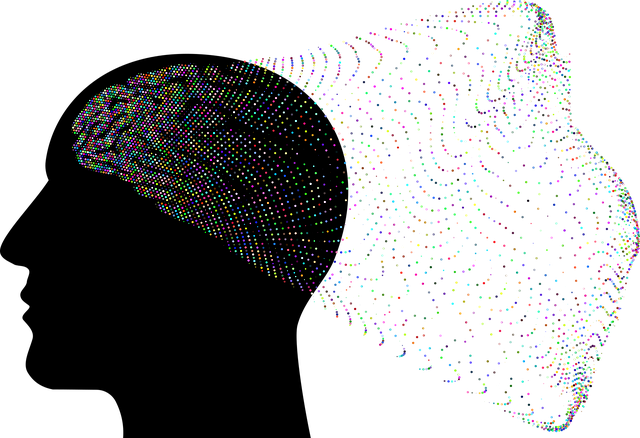Diagnosing mental illness in Colorado Springs, particularly among couples seeking therapy for communication issues, is hindered by misconceptions and stigma. To improve accuracy, therapists are undergoing specialized training, integrating advanced technology, and adopting patient-centric approaches. These strategies include education, self-awareness exercises, digital resources addressing cultural sensitivity, multidisciplinary collaboration, stress reduction methods, and empathy building. The goal is to enhance diagnostic skills, ensure tailored care, and normalize conversations about mental health in Colorado Springs Couples Communication Issues Therapy.
In Colorado Springs, improving mental illness diagnosis accuracy is a growing priority. This comprehensive guide explores strategies aimed at enhancing assessment reliability, delving into the challenges surrounding common misconceptions and the impact of specialized training for therapists. We examine advanced tools powered by technology, emphasize multidisciplinary collaboration, and highlight patient-centric approaches that foster open communication. By integrating these efforts, Colorado Springs couples seeking therapy can expect more accurate diagnoses and improved mental health outcomes.
- Understanding the Challenges: Unveiling Common Misconceptions about Mental Illness Diagnosis
- The Role of Specialized Training: Equipping Therapists in Colorado Springs for Accurate Assessments
- Integrating Advanced Tools and Techniques: Enhancing Diagnosis Accuracy with Technology
- Collaboration Beyond Therapy Walls: A Multidisciplinary Approach to Improve Diagnosis Reliability
- Patient-Centric Strategies: Empowering Individuals to Participate in Their Mental Health Journey
Understanding the Challenges: Unveiling Common Misconceptions about Mental Illness Diagnosis

Diagnosing mental illness is a complex process that often faces significant challenges due to prevalent misconceptions and societal stigma. Many individuals struggling with their mental health may face misdiagnosis or even avoid seeking help altogether because of these deeply rooted misunderstandings. In Colorado Springs, where couples often seek therapy for communication issues, the impact of inaccurate diagnoses can be particularly detrimental.
One common misconception is that mental illness is a sign of weakness or personal failure. This false belief prevents people from recognizing their symptoms and seeking appropriate support. Additionally, the vast spectrum of mental health conditions can make diagnosis intricate; symptoms may overlap across disorders, leading to misidentification. Enhancing understanding through education and promoting positive thinking are essential steps towards improving diagnostic accuracy. Encouraging self-awareness exercises and emotional regulation techniques can also empower individuals to better communicate their experiences with healthcare professionals.
The Role of Specialized Training: Equipping Therapists in Colorado Springs for Accurate Assessments

In Colorado Springs, therapists are undergoing specialized training to enhance their diagnostic skills, with a particular focus on identifying and addressing communication issues within couples therapy. This initiative is driven by the understanding that accurate diagnoses are paramount in mental health treatment, ensuring clients receive tailored and effective care. The training programs equip therapists with advanced tools and insights, enabling them to navigate complex presentations and subtle signs of distress more adeptly.
By prioritizing specialized training, Colorado Springs sets a benchmark for mental health practice. This proactive approach not only improves diagnosis accuracy but also fosters better risk management planning for professionals. As therapists gain expertise in communication dynamics, they can anticipate potential challenges, such as cultural barriers or self-esteem issues, and incorporate relevant strategies into their therapy sessions. Such continuous professional development aligns with broader mental health policy analysis and advocacy efforts, ultimately enhancing the overall quality of care.
Integrating Advanced Tools and Techniques: Enhancing Diagnosis Accuracy with Technology

In the pursuit of enhancing mental illness diagnosis accuracy, integrating advanced tools and techniques has emerged as a powerful strategy. Technology offers innovative solutions that can significantly improve assessment processes in Colorado Springs Couples Communication Issues Therapy. For instance, digital assessment platforms now employ sophisticated algorithms to analyze patient data, providing therapists with comprehensive insights into symptoms and potential diagnoses. These tools not only streamline the evaluation process but also ensure a more nuanced understanding of complex psychological scenarios.
Moreover, technology facilitates remote therapy sessions, making mental healthcare more accessible, especially in diverse cultural contexts. This accessibility is crucial for building resilience and promoting emotional regulation among individuals seeking support. Additionally, digital resources can be tailored to address specific challenges, such as Cultural Sensitivity in Mental Healthcare Practice, ensuring that therapeutic interventions are inclusive and effective for a broader range of clients.
Collaboration Beyond Therapy Walls: A Multidisciplinary Approach to Improve Diagnosis Reliability

In an effort to enhance mental illness diagnosis accuracy, a collaborative approach beyond the traditional therapy walls is essential. The diverse fields of psychology, psychiatry, and social work in Colorado Springs can unite their expertise to create a more reliable diagnostic process. By fostering strong communication among professionals, patients can receive more comprehensive care tailored to their unique needs. This multidisciplinary strategy ensures that various aspects of mental health are considered, reducing potential misdiagnoses and improving overall treatment outcomes.
Additionally, incorporating innovative practices like Stress Reduction Methods, Mental Wellness Coaching Programs Development, and Empathy Building Strategies can further bolster diagnostic reliability. These approaches not only complement traditional therapy but also empower individuals to take an active role in their mental wellness journey. Such collaborative efforts create a supportive ecosystem where every stakeholder contributes to improving diagnosis accuracy, ultimately benefiting those facing communication issues in Colorado Springs couples therapy.
Patient-Centric Strategies: Empowering Individuals to Participate in Their Mental Health Journey

In the pursuit of enhancing mental illness diagnosis accuracy, a patient-centric approach is revolutionizing healthcare in Colorado Springs. This strategy focuses on empowering individuals to actively participate in their mental health journey, treating them as partners rather than passive recipients of care. By fostering open communication and empathy, patients are encouraged to share their unique experiences and perspectives, providing therapists with invaluable insights. This collaborative process not only improves diagnostic accuracy but also strengthens the therapeutic alliance, making therapy more effective for Colorado Springs couples facing communication issues.
Empathy building strategies play a pivotal role in this shift, allowing mental health professionals to connect deeply with patients. The Emotional Healing Processes are enhanced through active listening and understanding, which are further supported by the production of a Mental Wellness Podcast Series. This multimedia approach not only educates but also normalizes conversations about mental health, creating an environment where individuals feel more comfortable seeking help for their communication issues and other therapy needs.
Mental illness diagnosis accuracy is a multifaceted challenge that requires a concerted effort from therapists, technologists, and patients alike. By understanding the common misconceptions surrounding mental health (Understanding the Challenges), equipping professionals with specialized training tailored to their local context (The Role of Specialized Training), integrating advanced tools and techniques (Integrating Advanced Tools and Techniques), fostering collaboration across disciplines (Collaboration Beyond Therapy Walls), and empowering patients to actively participate in their care (Patient-Centric Strategies), we can significantly improve diagnosis reliability. These efforts, centered around Colorado Springs couples communication issues therapy, hold the key to enhancing mental health outcomes for individuals seeking support in this vibrant community.














